Romina Yalovetzky
A Unified Framework for Provably Efficient Algorithms to Estimate Shapley Values
Jun 05, 2025Abstract:Shapley values have emerged as a critical tool for explaining which features impact the decisions made by machine learning models. However, computing exact Shapley values is difficult, generally requiring an exponential (in the feature dimension) number of model evaluations. To address this, many model-agnostic randomized estimators have been developed, the most influential and widely used being the KernelSHAP method (Lundberg & Lee, 2017). While related estimators such as unbiased KernelSHAP (Covert & Lee, 2021) and LeverageSHAP (Musco & Witter, 2025) are known to satisfy theoretical guarantees, bounds for KernelSHAP have remained elusive. We describe a broad and unified framework that encompasses KernelSHAP and related estimators constructed using both with and without replacement sampling strategies. We then prove strong non-asymptotic theoretical guarantees that apply to all estimators from our framework. This provides, to the best of our knowledge, the first theoretical guarantees for KernelSHAP and sheds further light on tradeoffs between existing estimators. Through comprehensive benchmarking on small and medium dimensional datasets for Decision-Tree models, we validate our approach against exact Shapley values, consistently achieving low mean squared error with modest sample sizes. Furthermore, we make specific implementation improvements to enable scalability of our methods to high-dimensional datasets. Our methods, tested on datasets such MNIST and CIFAR10, provide consistently better results compared to the KernelSHAP library.
QC-Forest: a Classical-Quantum Algorithm to Provably Speedup Retraining of Random Forest
Jun 17, 2024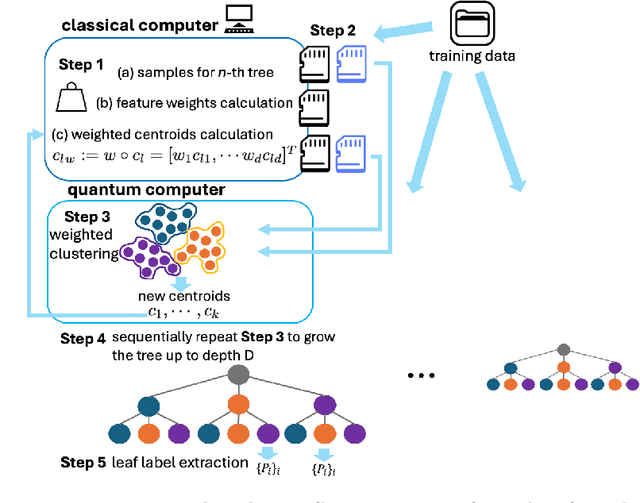

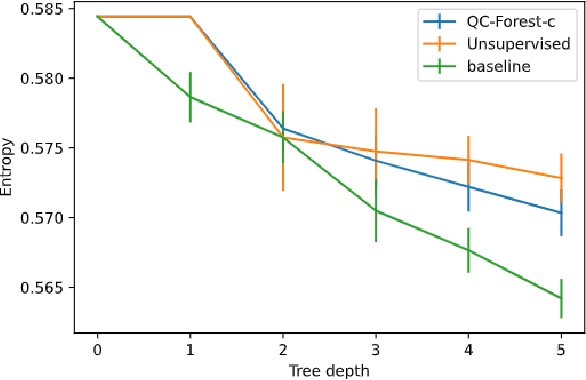
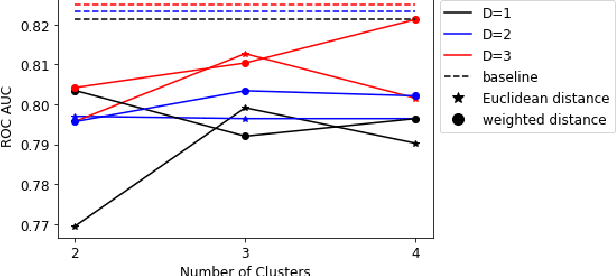
Abstract:Random Forest (RF) is a popular tree-ensemble method for supervised learning, prized for its ease of use and flexibility. Online RF models require to account for new training data to maintain model accuracy. This is particularly important in applications were data is periodically and sequentially generated over time in data streams, such as auto-driving systems, and credit card payments. In this setting, performing periodic model retraining with the old and new data accumulated is beneficial as it fully captures possible drifts in the data distribution over time. However, this is unpractical with state-of-the-art classical algorithms for RF as they scale linearly with the accumulated number of samples. We propose QC-Forest, a classical-quantum algorithm designed to time-efficiently retrain RF models in the streaming setting for multi-class classification and regression, achieving a runtime poly-logarithmic in the total number of accumulated samples. QC-Forest leverages Des-q, a quantum algorithm for single tree construction and retraining proposed by Kumar et al. by expanding to multi-class classification, as the original proposal was limited to binary classes, and introducing an exact classical method to replace an underlying quantum subroutine incurring a finite error, while maintaining the same poly-logarithmic dependence. Finally, we showcase that QC-Forest achieves competitive accuracy in comparison to state-of-the-art RF methods on widely used benchmark datasets with up to 80,000 samples, while significantly speeding up the model retrain.
Prospects of Privacy Advantage in Quantum Machine Learning
May 15, 2024



Abstract:Ensuring data privacy in machine learning models is critical, particularly in distributed settings where model gradients are typically shared among multiple parties to allow collaborative learning. Motivated by the increasing success of recovering input data from the gradients of classical models, this study addresses a central question: How hard is it to recover the input data from the gradients of quantum machine learning models? Focusing on variational quantum circuits (VQC) as learning models, we uncover the crucial role played by the dynamical Lie algebra (DLA) of the VQC ansatz in determining privacy vulnerabilities. While the DLA has previously been linked to the classical simulatability and trainability of VQC models, this work, for the first time, establishes its connection to the privacy of VQC models. In particular, we show that properties conducive to the trainability of VQCs, such as a polynomial-sized DLA, also facilitate the extraction of detailed snapshots of the input. We term this a weak privacy breach, as the snapshots enable training VQC models for distinct learning tasks without direct access to the original input. Further, we investigate the conditions for a strong privacy breach where the original input data can be recovered from these snapshots by classical or quantum-assisted polynomial time methods. We establish conditions on the encoding map such as classical simulatability, overlap with DLA basis, and its Fourier frequency characteristics that enable such a privacy breach of VQC models. Our findings thus play a crucial role in detailing the prospects of quantum privacy advantage by guiding the requirements for designing quantum machine learning models that balance trainability with robust privacy protection.
Des-q: a quantum algorithm to construct and efficiently retrain decision trees for regression and binary classification
Sep 22, 2023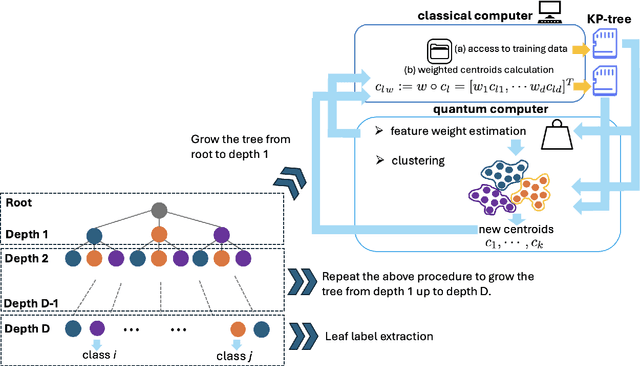
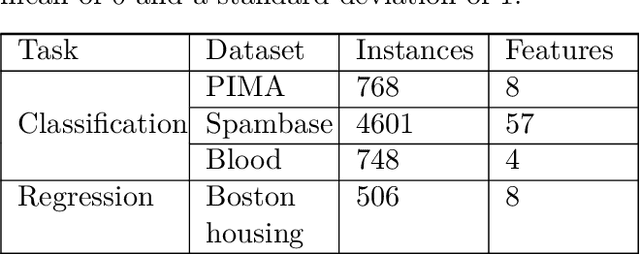
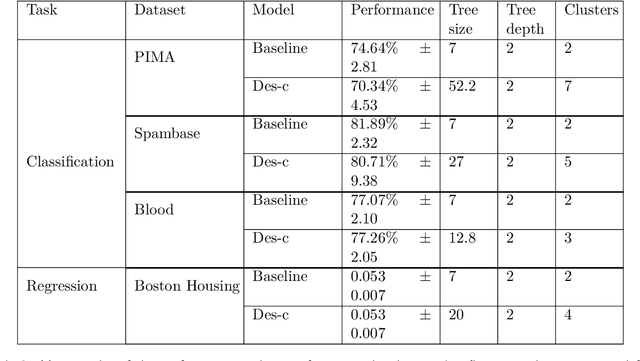
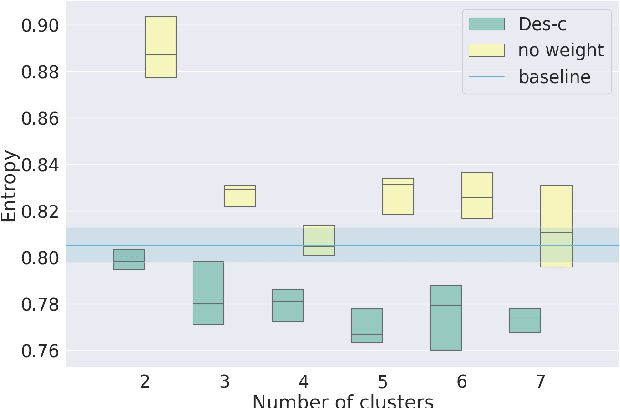
Abstract:Decision trees are widely used in machine learning due to their simplicity in construction and interpretability. However, as data sizes grow, traditional methods for constructing and retraining decision trees become increasingly slow, scaling polynomially with the number of training examples. In this work, we introduce a novel quantum algorithm, named Des-q, for constructing and retraining decision trees in regression and binary classification tasks. Assuming the data stream produces small increments of new training examples, we demonstrate that our Des-q algorithm significantly reduces the time required for tree retraining, achieving a poly-logarithmic time complexity in the number of training examples, even accounting for the time needed to load the new examples into quantum-accessible memory. Our approach involves building a decision tree algorithm to perform k-piecewise linear tree splits at each internal node. These splits simultaneously generate multiple hyperplanes, dividing the feature space into k distinct regions. To determine the k suitable anchor points for these splits, we develop an efficient quantum-supervised clustering method, building upon the q-means algorithm of Kerenidis et al. Des-q first efficiently estimates each feature weight using a novel quantum technique to estimate the Pearson correlation. Subsequently, we employ weighted distance estimation to cluster the training examples in k disjoint regions and then proceed to expand the tree using the same procedure. We benchmark the performance of the simulated version of our algorithm against the state-of-the-art classical decision tree for regression and binary classification on multiple data sets with numerical features. Further, we showcase that the proposed algorithm exhibits similar performance to the state-of-the-art decision tree while significantly speeding up the periodic tree retraining.
Quantum Deep Hedging
Mar 29, 2023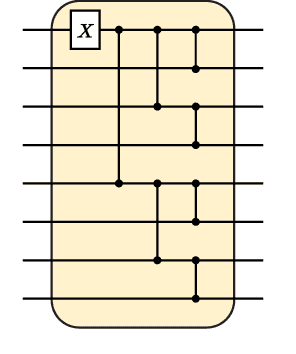
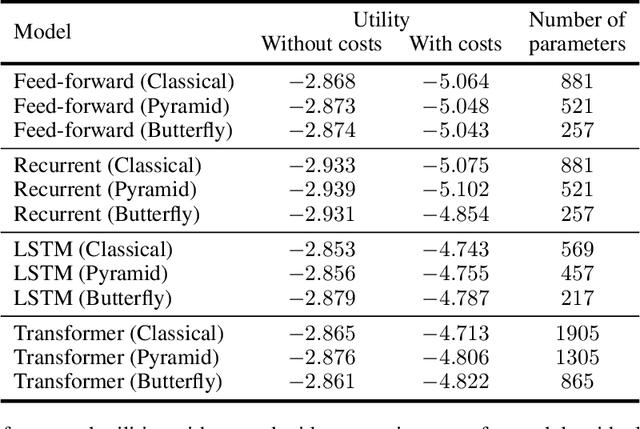
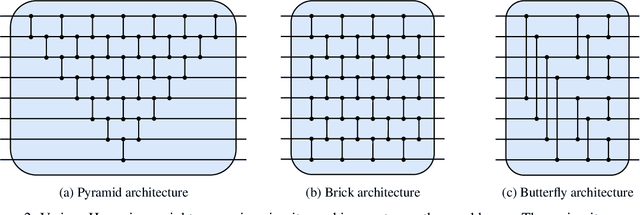

Abstract:Quantum machine learning has the potential for a transformative impact across industry sectors and in particular in finance. In our work we look at the problem of hedging where deep reinforcement learning offers a powerful framework for real markets. We develop quantum reinforcement learning methods based on policy-search and distributional actor-critic algorithms that use quantum neural network architectures with orthogonal and compound layers for the policy and value functions. We prove that the quantum neural networks we use are trainable, and we perform extensive simulations that show that quantum models can reduce the number of trainable parameters while achieving comparable performance and that the distributional approach obtains better performance than other standard approaches, both classical and quantum. We successfully implement the proposed models on a trapped-ion quantum processor, utilizing circuits with up to $16$ qubits, and observe performance that agrees well with noiseless simulation. Our quantum techniques are general and can be applied to other reinforcement learning problems beyond hedging.
Quantum Machine Learning for Finance
Sep 09, 2021Abstract:Quantum computers are expected to surpass the computational capabilities of classical computers during this decade, and achieve disruptive impact on numerous industry sectors, particularly finance. In fact, finance is estimated to be the first industry sector to benefit from Quantum Computing not only in the medium and long terms, but even in the short term. This review paper presents the state of the art of quantum algorithms for financial applications, with particular focus to those use cases that can be solved via Machine Learning.
 Add to Chrome
Add to Chrome Add to Firefox
Add to Firefox Add to Edge
Add to Edge